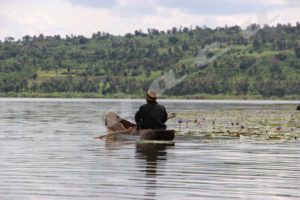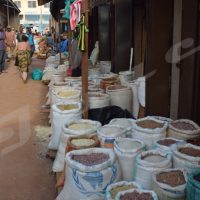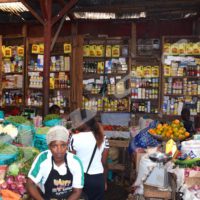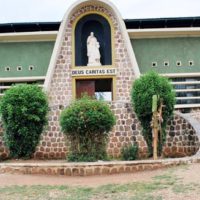Uncontrolled exploitation is the main threat to the lakes in Kirundo northern province. The administration promises to take innovative measures to effectively protect lakes from being polluted.

Ploughed fields constitute the main cause of pollution of the Lake Rwihinda.
Once at Lake Rwihinda, one observes vast tracts of ploughed fields: fields of onions, eggplant, cabbage and tomatoes. The latter go so far on the shores of the lake, where clumps of earth are visible. The same situation is also observed at the nearby Cohoha Lake.
Ploughed fields remain the main cause of pollution of the above two lakes.
While the water code provides for surface of at least 50 metres from the edges of the lake, the rule is not applied here. MV, one of the farmers met on Cohoha Lake clearing the ground in the forbidden area, explains the reasons why field owners do not comply with water code: «People living around the lake survive thanks to crops grown in these areas. We use them even in times of drought.”According to him, it is easy to irrigate plants being on the shores of the lake. “If the government plans to evict us from here, it will be expropriation and people will die of hunger,” he said.
Moses Barindambi, another farmer interviewed on the shores of Lake Rwihinda called on the government to allow them cultivate in the vicinity of the area bordering the lake. “One cannot grow beans on the higher slopes. The rain is insufficient all year round. Authorities should think about our families before taking measures to protect the lake, which has been polluted for years but continues to exist. ”
Sanctions are imposed against people who violate water code
However, on Lake Rweru, the 50- metres from the shores of the lake are observed. Daniel Macumi, Senior Adviser to the Governor of Kirundo, said raising farmers’ awareness to the importance of this security measure has taken much resources. “There were accompanying measures to encourage them to respect the 50-metres from the shores of the lake. For example, they have received water pumps to irrigate ploughed fields beyond the forbidden zone. They also received support for the breeding of bees. ”
The fishermen met on Lake Rweru are pleased with the implementation of measures to protect Lake Rweru. They said fish production has considerably increased. “Currently, fish can lay eggs on the edges of the lake without the farmers destroying them,” said Niyorugira, a fisherman interviewed on Lake Rweru.
Daniel Macumi warns farmers who continue to exploit protected areas in Rwihinda and Cohoha lakes. For him, severe sanctions will now be imposed against them. He also said Kirundo administration is considering additional measures to increase fish production in northern lakes.
Written by Cyrille Niyongabo and translated by Lorraine Josiane Manishatse



















 IWACU Open Data
IWACU Open Data

